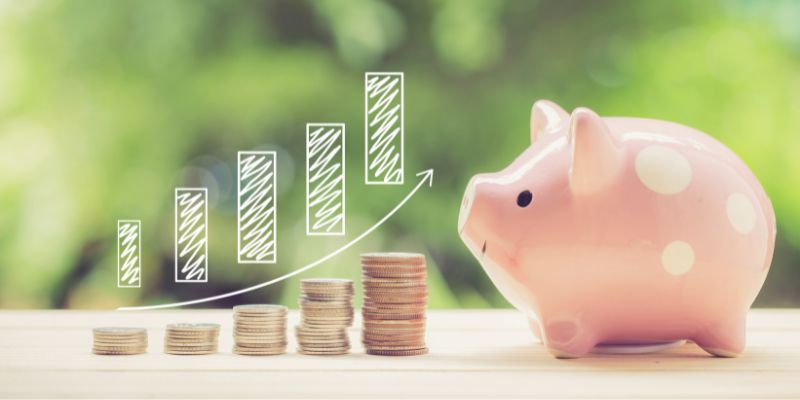Maximizing Your Income: How To Budget, Save Money and Increase Income

Maximizing Your Income: How To Budget, Save Money and Increase Income
Understanding exactly where your money is going every month and making plans for short and long term savings is essential for building wealth. Not only that, you’ll also have greater peace of mind when you track your spending and can identify what’s working well and what needs improvements. Over 70% of Americans say that finances are their number one stressor in life—but this doesn’t have to be the case.
Budgeting helps you stay on top of your bills, avoid late payments, and maintain, or even build, your credit score. You’ll be able to see where you have spare funds for saving for future expenses and where you can make significant dents in your ongoing debts.
Whether you’re looking to save for a house, a car, a vacation, or simply want to build your emergency fund, F&M Bank wants to help make your life easier with simple-to-follow budgeting tips that will help you to save money and increase your income.
 How to Create a Household Budget
How to Create a Household Budget
Determine variable and fixed expenses
The first place to start with any budget is understanding exactly what money you have coming in and going out each month. Look at your fixed expenses first. These will include:
- Rent or mortgage payments
- Renters or mortgage insurance
- Cell phone
- Internet and cable
- Health, disability, or life insurance premiums
- Home utilities like water, gas, and electric
- Property taxes
- Childcare costs
- Student loans or car loans
- Recurring subscriptions like gym memberships or streaming services
- Automated savings
Once you know what your regular outgoings are, you can review your variable costs. These are items that will change month-to-month but are also areas where you may be able to cut back and save more, like:
- Gas
- Parking fees
- Groceries
- Eating out
- Clothing
- Personal care expenses
- Healthcare expenses
- Home maintenance and repairs
- Entertainment
- Hobbies and recreation
Set financial goals and priorities
Once you have a list of all your income and expenses, it’s time to set some financial goals. Knowing exactly what you want to achieve with your finances is important for making the smartest decisions about bank accounts or investments, but also gives you more motivation to stick to your budget.
Be as specific as possible and create SMART goals. “Save more money” is an okay goal, but “save $5000 by the end of this year” is much better.
Create a budget plan
There are plenty of resources online for how to create a budget that works for you. Some people like zero-based budgeting, where your income minus your expenses should total zero, and every dollar is assigned a role.
Others like the envelope system, where you allocate cash to defined envelopes for different categories of spending. The 50.30.20 budget is a great option if you’re trying to actively save more money. This is where 50% of your income goes to your needs, 30% to your wants, and 20% to savings.
Track spending
Whichever budgeting method you choose to use, be sure to actually track your earnings and outgoings. You can’t stop overspending if you don’t know where your money is going!
There are a number of different tracking apps you can use if you prefer a digital method, like Mint or You Need a Budget. You can also use a simple pen and paper method if manual tracking is more your style.
Creative tips for saving money in different areas of your budget
Housing
Saving money on your housing costs can be tricky, especially with mortgage and rent payments set at a fixed amount each month. But small changes around your home can save you over the course of the year.
Turn down your thermostat to keep your heating costs as low as possible. The US Department of Energy suggests 68F in the winter season, while 78F in the summer when you’re home should be fine.
You can also unplug any electric devices you aren’t currently using, like hair dryers or charging cables. Take a look through your kitchen to see what appliances could be unplugged until you next need them.
Hanging your clothes out to dry can also save you significant money if you do laundry multiple times a week. The average dryer uses 3,000 watts per hour, which can really add up with several loads of laundry.
Transportation
If possible, look at alternative transportation options to using a car. You could consider using public transportation, especially if you live in or near a city, or walk and bike to work or the store instead of driving.
If your location requires you to use a car, see if you can carpool with friends or coworkers who live nearby. Sharing driving duties will cut down on gas for each of you, along with wear on your vehicle and tires.
Food
Instead of rushing out to grab takeout, plan your meals in advance and grocery shop for only what you need. Cooking at home can save thousands of dollars each year, particularly if you go out to eat regularly.
Entertainment
Having fun and doing what you love is of course important. But look at what you can do for free or some low-cost activities in your town or city. Libraries offer free DVD rentals and audiobooks, along with thousands of books at your disposal.
You could also look at cutting cable or select streaming services if you’re able to share subscriptions with friends or family. It’s also worth looking at the benefits that might come with your cell phone or internet plan. Many companies now offer streaming subscriptions as part of their customer benefits, so you’ll get to keep your subscription but for no extra cost.
Shopping
Before going out to the shops, compare prices online when you’re thinking about making a purchase. You can also make use of coupons, both in-store and online, for many stores. Tools like Honey automatically find coupon codes for you to use at checkout and can help you save on items you were already planning to buy.
Debt repayment
When paying off multiple debts, look at your interest rates and make decisions about what your priorities are. Consider paying off high-interest debts first to ensure that you’re not paying more than you have to. You can also consolidate debts by taking out a new loan, paying off your old debts, and only needing to repay the new loan you have in place.
Ideas for increasing income
Negotiate a raise or promotion at work
Working hard deserves reward, but asking for what you want can feel a little scary. But this is one of the biggest areas to make a significant impact on your long-term financial situation. A promotion or raise can increase your income and set you up for future raises or promotions and, with that, more money.
Start a side hustle or freelance
If you have a hobby or skill that you could monetize, starting your own small business or freelancing is a great way to add additional income to your household.
Platforms like Amazon, Etsy, and Shopify all now make it quick and simple to start a business with very little startup costs or overhead.
Rent out a room or property
If you live in a tourist-heavy location, you could consider renting out a property or a room in your home as an Airbnb or vacation rental.
This can also work well if you live near a college or university and have students nearby looking for rooms to rent.
Remember though, always do your due diligence when renting to a stranger. Do your research and stay safe.
Sell unused items
Everyone has clutter around their home that they no longer want or need. But one person’s trash can be another’s treasure, so take some time to dig through your attic, garage, and closets to find items you might want to sell online or to your neighbors.
Improve your financial well-being this year
Creating and following a household budget can help you save money and achieve your financial goals. With some planning and discipline, along with a little hard work, anyone can learn to manage their money more effectively.
F&M Bank offers two BonuSelect Checking Accounts that help earn you money – choose Cash Back or High Interest on your account that you use every day. Pair it with a BonuSelect Savings Account and boost your savings.



